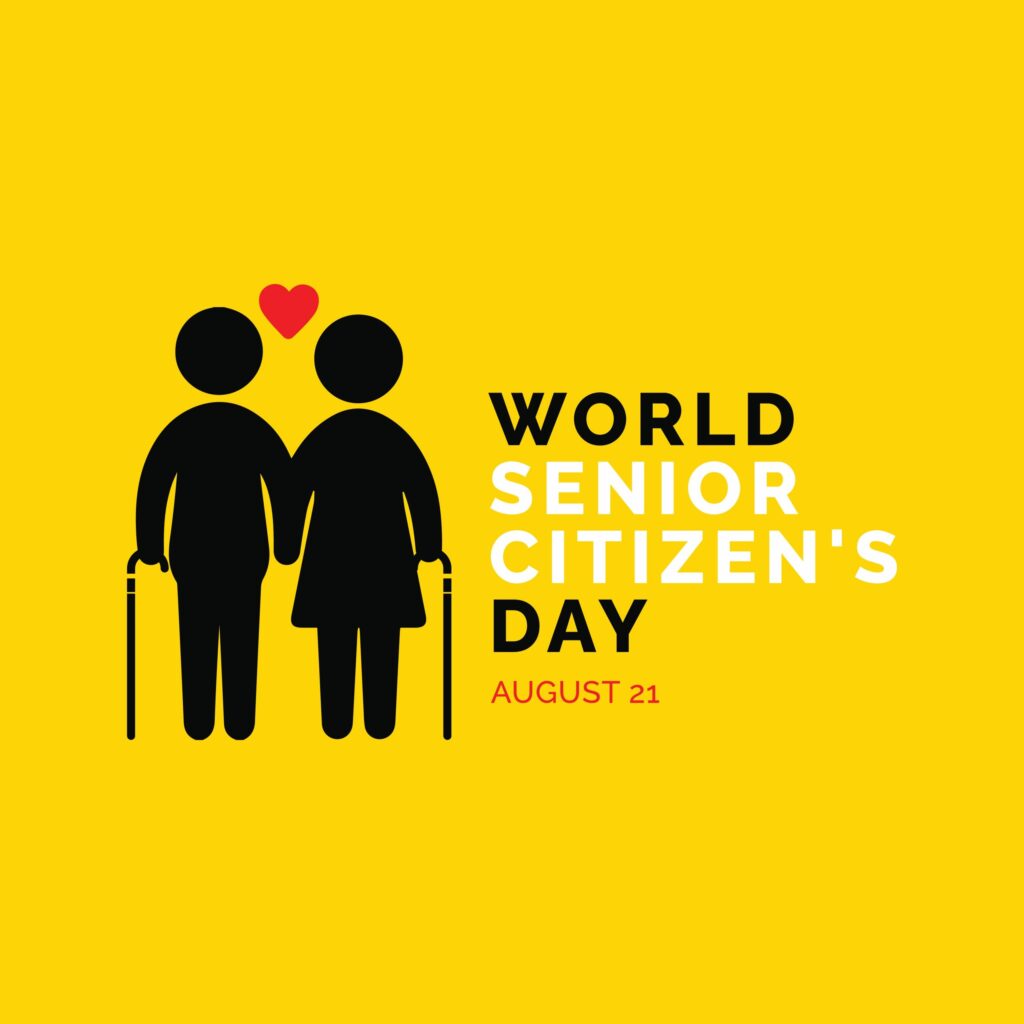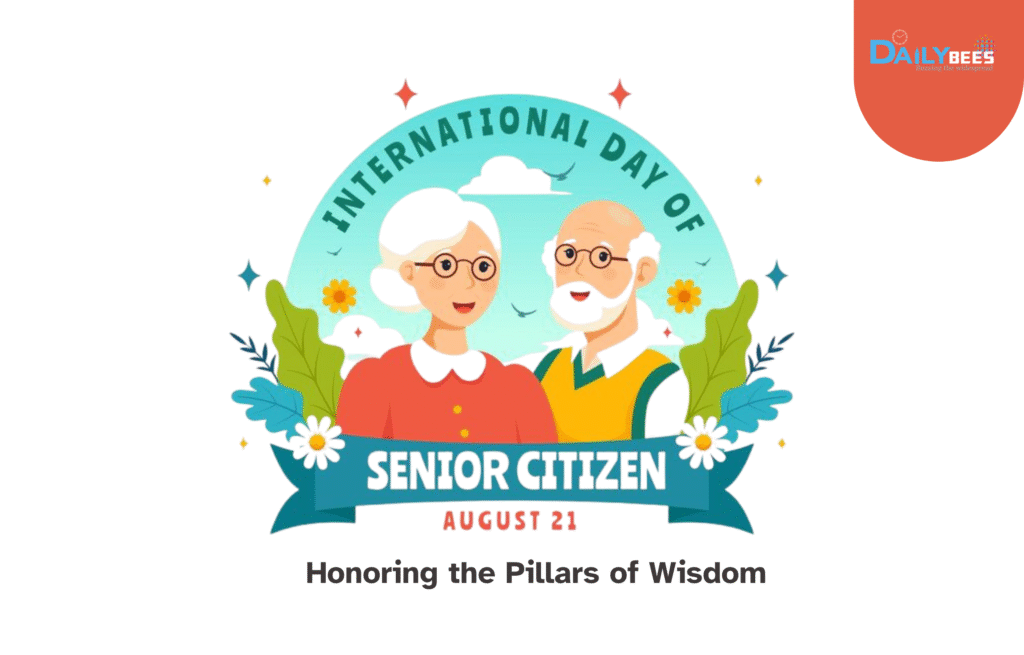Every year on August 21, the world observes World Senior Citizens’ Day to honor the invaluable contributions of older generations. Initiated in 1988 by then U.S. President Ronald Reagan, the day has since become a global occasion to reflect on the role of elders in shaping society, acknowledge their struggles, and raise awareness about the need for compassion, inclusion, and dignity in their golden years.
In 2025, the theme resonates more strongly than ever: serving our elders with dignity and respect in a world that often sidelines them in the rush of modern life. With increasing life expectancy, global aging populations, and rising challenges such as healthcare access, financial dependency, and social isolation, this year’s observance carries a deeper meaning.
The Significance of World Senior Citizens’ Day
The day is not just about celebrating senior citizens; it’s about recognizing their legacy, sacrifices, and continued contributions. From raising families and shaping communities to playing crucial roles in the workforce, elders form the backbone of every society.
By 2050, the global population of people over 60 years old is expected to double, according to UN estimates. This demographic shift emphasizes the need for supportive policies and community-driven initiatives that ensure older adults live healthy, dignified, and fulfilling lives.
Why Dignity and Respect Matter for Elders

Serving elders with dignity is not charity—it’s a moral responsibility. Respect acknowledges their life experiences, while dignity ensures their rights are preserved. Here are some reasons why it is vital:
1. Acknowledging Their Contribution
Our elders have given their best years to building families, societies, and nations. Honoring them ensures their sacrifices are not forgotten.
2. Combating Ageism
Age discrimination is a reality across workplaces, healthcare, and even within families. Promoting respect combats stereotypes and fosters inclusion.
3. Mental and Emotional Well-Being
When elders feel valued, their self-esteem improves. This reduces loneliness and depression, ensuring better mental health.
4. Strengthening Family Bonds
Respecting elders sets an example for younger generations, reinforcing cultural values of love, care, and gratitude.
Challenges Faced by Senior Citizens Today
Despite their immense contributions, many elders face daily struggles that compromise their dignity:
- Healthcare Access: Rising medical costs and inadequate insurance coverage put many in vulnerable positions.
- Financial Dependency: Retirement funds and pensions are often insufficient to meet modern living expenses.
- Isolation: Urbanization and nuclear families often leave elders living alone, leading to loneliness.
- Digital Divide: In a technology-driven world, many seniors struggle to adapt, leading to exclusion.
- Elder Abuse: Sadly, cases of neglect and abuse against older people are on the rise.
Addressing these challenges requires collective responsibility—from governments, communities, and individuals.
How the World Observes World Senior Citizens’ Day 2025
In 2025, countries across the globe are marking this day with programs focused on elder rights, welfare, and celebration:
- India: Community centers and NGOs are organizing cultural programs, free medical camps, and awareness campaigns against elder abuse.
- United States: Senior homes are hosting intergenerational events, where children and young adults interact with the elderly.
- Europe: Many governments are highlighting policies for active aging, financial security, and healthcare reforms.
- Asia: Countries with strong family values are focusing on integrating seniors into decision-making at both household and community levels.
This year’s celebrations emphasize creating inclusive spaces where seniors feel they belong.
How to Serve Elders with Dignity and Respect

Here are some practical ways individuals and communities can show respect and support:
1. Spend Quality Time
Even a simple conversation can brighten their day. Listening to their stories and experiences shows them they are valued.
2. Encourage Independence
Rather than treating seniors as helpless, encourage them to participate in decisions, hobbies, and community activities.
3. Support Health and Well-Being
Accompany them to medical check-ups, ensure they eat nutritious food, and encourage light exercise for fitness.
4. Bridge the Digital Divide
Teach them how to use smartphones, online services, and digital platforms so they feel empowered in a tech-driven world.
5. Celebrate Their Achievements
Recognize birthdays, anniversaries, and milestones. Small gestures of celebration reaffirm their importance in the family.
Role of Government and Society
For true impact, systemic support is vital. Governments can:
- Introduce better pension schemes.
- Provide affordable healthcare facilities.
- Enforce strict laws against elder abuse.
- Create senior-friendly infrastructure in public spaces.
Meanwhile, NGOs and social organizations must drive campaigns for elder inclusion, while communities must nurture intergenerational bonds.
Inspirational Examples
- In Japan, elders are deeply respected, and “Respect for the Aged Day” is a national holiday where the younger population honors seniors.
- In India, many traditional families still uphold the joint family system, where elders guide household decisions.
- In Scandinavian countries, social welfare systems ensure seniors live independently with dignity.
These examples remind us that a culture of respect must be actively nurtured.
Conclusion
World Senior Citizens’ Day 2025 is a reminder that elders are not just passive members of society but pillars of wisdom, experience, and resilience. Serving them with dignity and respect is not just a responsibility but an act of gratitude for the lives they’ve dedicated to building a better world for us.
As we envision a future of inclusive growth and humanity, let us remember: how we treat our elders today is how we will be treated tomorrow.
On this special day, let us pledge to create a world where seniors feel respected, supported, and cherished—because dignity has no age.

